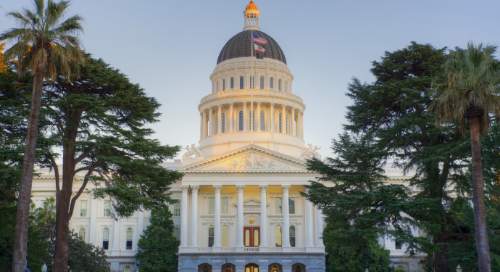This resource is provided by ACSA Partner4Purpose Lozano Smith.
In a recently decided case, Fellowship of Christian Athletes v. San Jose Unified School District Board of Education (9th Cir. Aug. 29, 2022, No. 22-15827), the Ninth Circuit Court of Appeals reversed a federal district court and determined that the San Jose Unified School District’s use of its non-discrimination policy against the Fellowship of Christian Athletes (FCA) likely violated the First Amendment. Consequently, the Ninth Circuit Court of Appeals ordered the school district to reinstate FCA’s status as an official student club.
Background
The FCA student club required students serving in leadership roles to abide by a Statement of Faith, which included the belief that sexual relations should be limited within the context of a marriage between a man and a woman. The school district revoked the FCA’s status as an official student club at its high schools, claiming that the religious pledge requirement violated the school district’s non-discrimination policy.
According to the school district’s administrators, the FCA club’s Statement of Faith violated the non-discrimination policy by requiring leaders to “affirm a belief in Christianity,” thereby excluding students of other faiths or non-religious students, and to “affirm that marriage is exclusively the union of one man and one woman,” excluding homosexual students and students with homosexual parents.
FCA, through two of its student leaders and with the help of its national organization, filed suit against the school district and several of its administrators, alleging the denial of equal access to extracurricular school clubs violated federal anti-discrimination statutes as well as Constitutional protections of free speech, freedom of expression/association, free exercise of religion, and equal protection, under the First and Fourteenth Amendments. FCA filed a motion for a preliminary injunction requiring the school district to restore FCA as an approved student club.
Revoking the Fellowship of Christian Athletes’ Club Status Violated the First AmendmentThe Ninth Circuit Court of Appeals acknowledged that the dispute pitted two competing American values: the principle of non-discrimination, and the First Amendment’s protection of free exercise of religion and free speech.
The Ninth Circuit Court of Appeals determined that the school district selectively enforced its non-discrimination policies against FCA. Other secular student groups, such as the Senior Women’s Club and Big Sisters/Little Sisters, maintained facially discriminatory membership criteria, but maintained student club recognition. Consequently, the Ninth Circuit Court of Appeal concluded that the school district targeted FCA because of its religious-based views about marriage and sexuality, and not merely because of its alleged violation of non-discrimination policies.
Notably, in a concurring opinion, the Ninth Circuit Court of Appeals also considered the animus that the school district demonstrated against FCA for its religious-based views. Specifically, the concurring opinion of one of the three judges on the panel considered the comments towards FCA, which included comments referring to evangelical Christians as “‘charlatans’ who perpetuate ‘darkness’ and ‘ignorance.’”
Takeaways
School districts must ensure that they uniformly apply non-discrimination policies when balancing the rights of different student groups. Non-discrimination policies, including the one reviewed by the Ninth Circuit Court of Appeals, may be enforceable with regard to the recognition of student organizations, as long as they are generally applicable or neutral to all student organizations. Therefore, in enforcing such non-discrimination policies, school districts should be cognizant of whether all student organizations are held to the same standard. Although tensions may run high on school campuses, school district employees must be cautious in the tone of their communications regarding any specific student organization, regardless of their personally held beliefs. School district administrators should consult with legal counsel to avoid any legal challenge to the enforcement of a non-discrimination policy.
If you have any questions about this decision, or non-discrimination policies in general, please contact the author of this Client News Brief or an attorney at one of Lozano Smith’s eight offices located statewide.


























